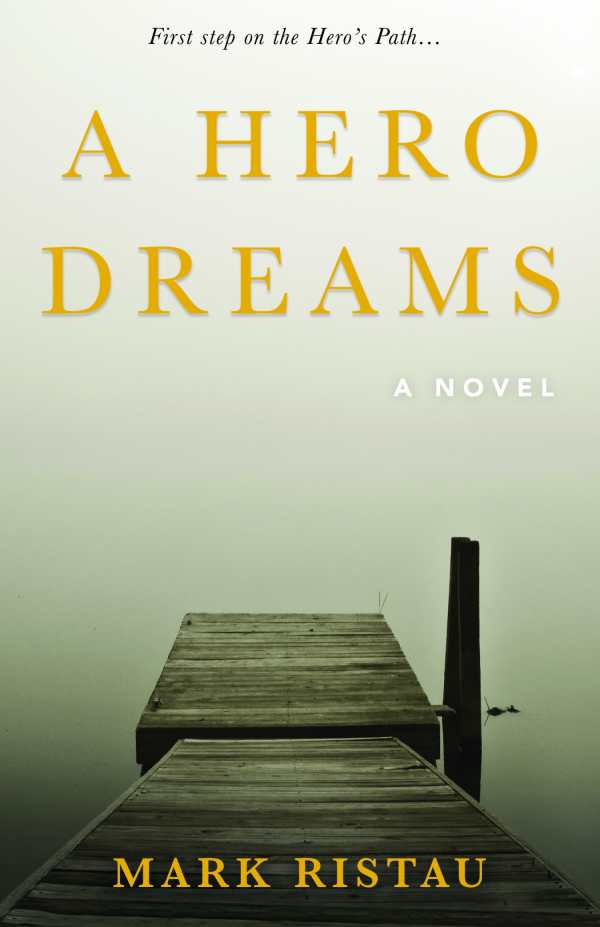It looks like you've stumbled upon a page meant to be read by our code instead of viewed directly. You're probably looking for this page.
A Hero Dreams
In this inspiring tale of faith and courage, Ristau paints a complex character portrait involving the engaging interplay of individuals and their actions.
In A Hero Dreams, the profoundly moving first installment of Mark Ristau’s Hero’s Path series, a young boy navigates a path of loneliness, fear, and violent confrontation in the aftermath of his father’s death. In a search for strength and solace, he forges through a blended realm of reality, spirit, and imagination.
Ricky Williamson had a relatively normal childhood except for a near drowning at age four. That event left him with a premonition of hope for the world, and the memory of a chocolaty-eyed angel. His life abruptly changes when his father suddenly dies. While his mother and younger brother, Danny, seem able to cope, eight-year-old Ricky is devastated. Sensing his father’s presence, he begins to experience haunting daydreams. His visions vary from a horrific train accident involving local teens and a NYC terrorist attack viewed twenty-five years in the future to a family tragedy that brings solemn heartbreak to a former Olympic athlete.
In July 1976 Ricky and Danny are dropped off for five weeks of camp in Maine. Here, in stark violation of the camp’s honor code, Ricky is brutally victimized. Plagued by the recollection of the unconscionable defilement, he mires through the trauma amid voices and surreal visions that ultimately steer him toward escape to an elusive “unknown threshold.”
Fellow campers and a primary antagonist represent the story’s greater conflict, and Ristau strategically includes a lesser mythological Mohawk warrior as another element of vengeful ghostly intentions. While some solace is offered in the form of adult camp counselors, more often it poignantly arrives as an escape for Ricky through spiritual voice and vision. In the book’s final chapter, Ricky’s eventual awakening on an unfamiliar shoreline builds anticipation for the series’s next installment.
Ristau’s powerful work is clearly a nod to the inspirational writing of scholar Joseph Campbell, with a narrative that centers on a hero’s odyssey. The choice of first-person point of view is an immediate draw into the heart and soul of the main character. In the classic tradition of heroic adventures, Ristau richly textures the story with obstacles of sibling rivalry, peer pressure, and bullying, while paving the way for thematic explorations of good vs evil, love and hate, honor, guilt, and forgiveness.
Ristau’s writing is dramatic and poetic. Through artful detail and a penchant for simile, he renders Ricky’s view of the world in both its beauty and harshness: a star-studded sky offers a comforting embrace, but the bone-chilling surrender witnessed in a scene of violation becomes seared into memory. The author paints a complex character portrait involving the engaging interplay of individuals and their actions.
An inspiring tale of faith and courage, Ristau’s work would make a fine addition to an upper school curriculum or adult reading group. The work invites examination of universal themes that transcend a well-referenced ’70s timeframe, multifaceted characters, and a contrast between reality and what lies beyond.
Reviewed by
Carol Davala
Disclosure: This article is not an endorsement, but a review. The publisher of this book provided free copies of the book and paid a small fee to have their book reviewed by a professional reviewer. Foreword Reviews and Clarion Reviews make no guarantee that the publisher will receive a positive review. Foreword Magazine, Inc. is disclosing this in accordance with the Federal Trade Commission’s 16 CFR, Part 255.
